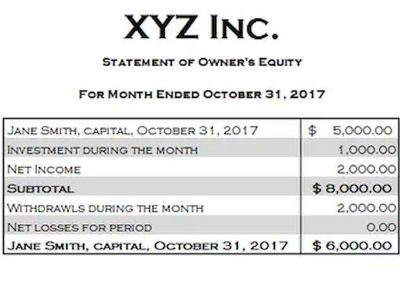Content
- Best small business accounting software
- Overview: What does a small business accountant do?
- How does the legal structure of my business affect me at tax time?
- How can an accountant help me and my business?
- Process or review payroll and approve tax payments
- What does an accountant do for a small business?
- Claim for all Business Expenses

The accountant can make recommendations based
on whether the company earned a return on their investment as a result of
spending more on marketing. A business accountant is your expert in managing financial information because they’re trained in the fine details of assets, debts and revenue. With a strong business accountant reviewing your finances, your company can develop informed business strategies that promote growth, and you’ll be organized year-round — not just at tax time. For example, hiring an in-house accountant, either part-time or full time, ensures a certain dedication of your accountant’s time.
What a business accountant does?
An accountant is a professional who handles bookkeeping and sorts out the financial documents you need to run your business—like profit and loss statements, balance sheets, and more. They audit your books, prepare reports for tax purposes, and simplify all the financial mumbo jumbo that comes with running a business.
If you are starting a small business on a limited budget, you might not want to spend the money to hire an accountant. However, if you lack experience in managing the financials of a business, you might want to hire an accountant. Good accountants help companies grow, https://kelleysbookkeeping.com/how-much-do-bookkeeping-services-for-small/ by managing complex financial work and offering advice on practical business issues. This will be guaranteed to save you money in the short and long term. The best ones will be your partner in all but name – and as long as you choose wisely, you can’t go wrong.
Best small business accounting software
Small business accountants are professionals, often Certified Public Accountants (CPAs), who have the experience and knowledge to help owners navigate through their financial records. Depending on the size and needs of the business, these accountants may work on a monthly, quarterly or annual basis. While larger companies often keep accountants on staff, small businesses typically contract with an accounting firm or independent accountant who offers the services they need. Keeping track of your financial data, recording it, and filing it can be daunting and certainly time-consuming. However, suppose you have help from income tax services for businesses.

Automated retrieval programs (commonly called “robots” or “bots”) can cause delays and interfere with other customers’ timely access to information. Therefore, bot activity that doesn’t conform to BLS usage policy is prohibited. It’s important to look at an accountant as an integral member of your team.
Overview: What does a small business accountant do?
Despite the cost, it can save you lots of time and money down the line. This can all get a bit complicated, so check in with your accountant for detailed information about your specific state’s regulations regarding international sales tax. A separate bank account for business protects your personal assets in the unfortunate case of bankruptcy, lawsuits, or audits.
What are the 4 types of accounting?
- Corporate accounting.
- Forensic accounting.
- Public accounting.
- Government accounting.
A lot of the time, they’re in leadership roles where they use financial data to help with business strategy, risk management and budgeting. CMAs can also manage a team of accountants who perform basic accounting duties. An accountant can help small business owners follow financial rules and regulations, explain financial statements, oversee 10 Companies That Hire for Remote Bookkeeping Jobs payment processes, help them file their taxes correctly, and more. Accounting software can help you organize your payroll, send and receive payment for invoices, and organize your small business taxes. FreshBooks accounting software offers a wide range of accounting services so you can keep track of your own business expenses and profits.
How does the legal structure of my business affect me at tax time?
So maybe it’s time to consider consulting an accountant, at least for your company’s first tax filing. An accountant will best be able to tell you what’s allowable and what’s not. Sometimes it’s tough deciding on what type of help you need for your small business, because that help is going to cost you money. In this article, we are going to answer the top 10 questions you should ask yourself when deciding whether you need an accountant for your business.
Without a due date, you will have more trouble forecasting monthly revenue. Read more about getting paid faster in our guide to getting invoices paid on time. Since cash is the fuel for your business, you never want to be running on or near empty.
How can an accountant help me and my business?
A business that is well-run is one where the owner has an understanding of the value of the business as well as a real-time understanding of its financial health. Once you find potential accountants, get a better understanding of an accountant’s fit with company culture and workflow through an in-person or video interview. Your professional network knows your business, so it’s a reliable way to find support for your unique business needs. Have conversations with your company’s connections — your legal counsel, bank or business coach — and within your industry.

 by Falc
by Falc
Leave a Reply